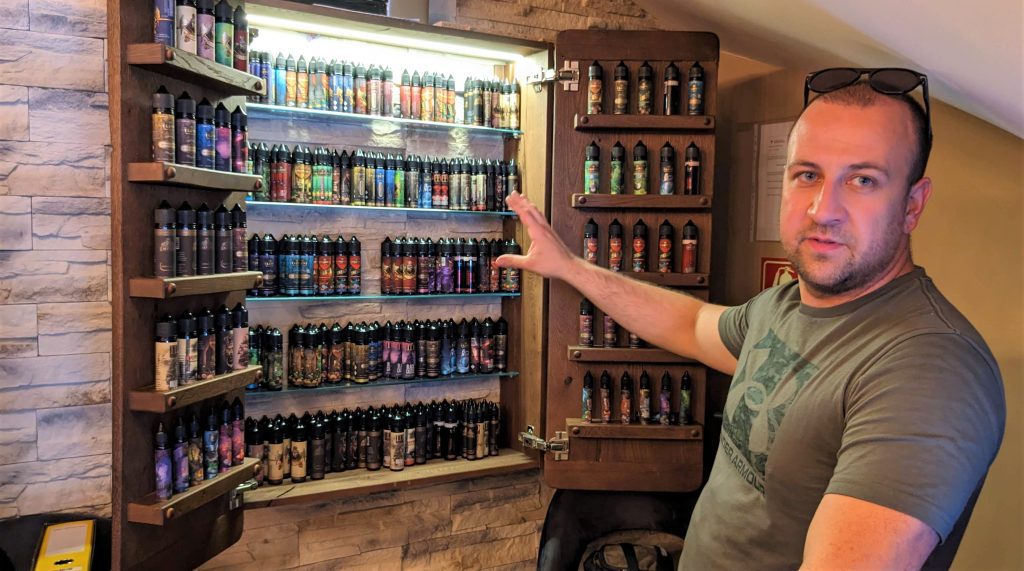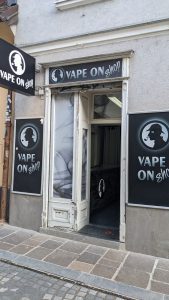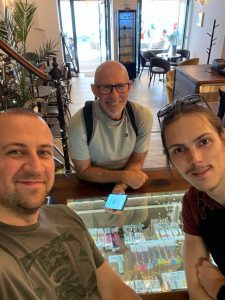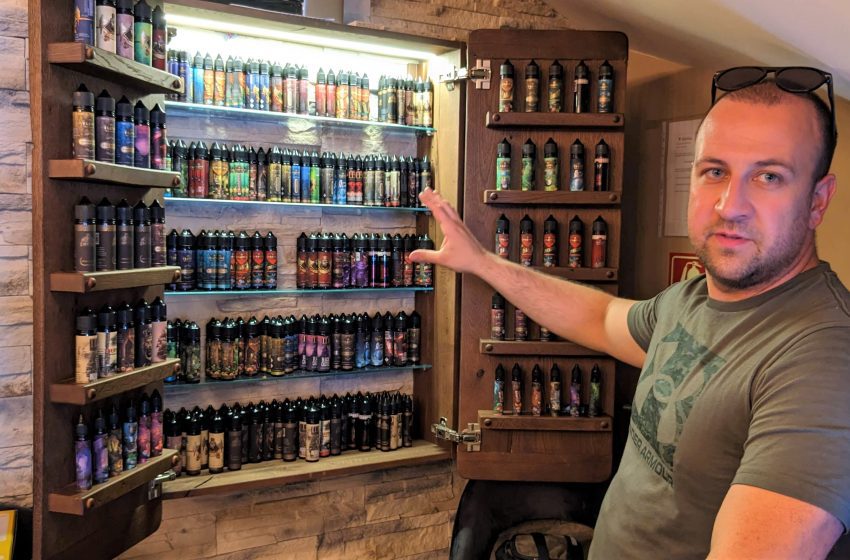
The vape industry in Slovenia has quickly gone through several cycles over the past decade.
By Norm Bour
Slovenia is known for its diverse landscapes, giving it its nickname of “Little Europe.” The country, one of the smallest in Europe, is nudged between Italy and Croatia to the south, Austria to the north and Hungary to the east. It is part of the European Union and therefore abides by the all-inclusive Tobacco Products Directive (TPD).
On a recent visit to Slovenia, I visited two vape shops, one in the capital city of Ljubljana and the other in the second-largest city, Maribor, to the north. “Disposables are about the only practical option in Slovenia right now,” said the gentleman at Vape On Shop vapes in Ljubljana, “and taxes have pretty much killed the market for mods.”
Eighteen cents per milliliter equates to about €4.50 ($5.01) for one nicotine shot. To increase the pain, the same tax applies to non-nicotine vape products as well. When you add the value-added tax, that makes smoking a luxury in any form. A package of standard cigarettes is about €4.50, which is reasonable compared to some other countries.
Vape On opened about nine years ago and has ridden the rising tide of taxation in Slovenia as well as competing with outfits in neighboring countries that may be more proximate for some of its customers. Those taxes are scheduled to increase incrementally through the end of the year. Aside from taxes, it is also facing flavor bans, and the regulators want just one flavor—tobacco—to be offered.
“I think the government loses money on combustible cigarettes, and they are trying to get it back through our vape shops,” the shopkeeper confided. “We have some of the highest nicotine taxes in Europe, so that makes it hard to make money.”
During our conversation, a customer came in looking for THC, which is illegal in Slovenia. HHC is acceptable, however. Vape On offers it as a smokable herb as well as in gummy form, but, like many vape shop operators, the shopkeeper was reluctant to sell it, and he kept it hidden.
“I started in vape to help people stop smoking, just like I did,” the shopkeeper said. “I really don’t want to sell products just to get the customer high, which is a common sentiment among the vape shop crowd. He was a lifelong smoker and a 10-year vape converter.”
Moving up to Maribor, I stumbled across one of the coolest vape shops I’d seen in a while—a real crossover since it was a coffee shop as well as a bar.
“We’re pretty new here in this location, and we started as a bar, then added vape,” said Jure Strasek of the Vape and Puff Shop. “All together, we have 14 shops in Slovenia and one in Zagreb, Croatia. The name of the bar is Belidim Bar, and some people come in for one thing, maybe coffee, and now we can offer them choices.”
Walking in was almost a step back in time since many shops I have seen over the years have been low-key affairs. Whereas vape shops from a decade ago were sometimes opulent and impressive, most today are small and more functional. In the entry is the bar area with a curving staircase in the rear, with a crystal chandelier hanging above! If the bar was going for a Victorian look, they succeeded—but I think they were intending to create an air of classiness in the shop, which they achieved too.
“All our products must remain hidden,” shared Strasek. “We open up the display doors or turn on the lights only when we know we have a legal customer. The display cases are softly lit so you can barely see anything, and we are very careful to avoid selling to minors.”
When I asked about favorite flavors or brands, he replied, “We sell our own called Egoist and Exotic Oxygen, and we sell many different flavors. We also have a few lines that fit under those brands, but overall, those two cover most of them.”
Vape and Puff Shop is bucking the trend since disposable sales are secondary to their liquid sales, which is old school and different from most shops today. Its prices are quite affordable—a 60 mL bottle of the shop’s house brand retailed for €19, but that is without nicotine and without a base flavor. The shop adds nicotine and flavor separately.
Due to regulations that prevent them from selling pre-mixed flavors, this provides a special niche unlike most other vape shops.
I asked Strasek if he thought the government might succeed in banning flavors, and he responded with an empathetic “no.” “Maybe in disposables, but I don’t think they will ban individual flavoring,” he said. “That would pour over into flavors for candies, cookies and other treats, so where do you draw the line?”
Nic shots are limited, per the TPD, but he believes that they will continue to grow their shops.
The vape industry has gone through several cycles over the past decade. In the heyday from 10 years ago, many also went the multipurpose route as Vape and Puff did in Maribor. It would be a trend I would love to see continue.
Meanwhile in Croatia, two big events happened on Jan. 1, 2023. Even though the country was already part of the European Union, it not only adopted the euro as its currency that day but also became part of the Schengen Zone, which means it now shares passport controls with the other 26 countries that are part of the agreement. In Split, Croatia, I returned to VAPEX, a shop that I profiled in December 2021, to ask about changes in its model.
“Business has been good,” said Igor Eberhardt, the owner of the shop. “We just opened another shop in Dubrovnik. But, like everywhere, we are dealing with increasing taxes, which are currently €0.16 per milliliter—and that is for pure base even without nicotine.” Those numbers are staggered to increase for the next several years, and that has been giving Eberhardt pause since he desires to open a higher profile vape bar in Split.
It seems that Croatian vape laws, aside from the TPD, follow those of Germany. So if Germany decides to limit or regulate flavors, Croatia will probably follow suit.
I asked if there had been any changes in Eberhardt’s business since the first of the year, when the euro replaced the kuna as the country’s legal tender.
He laughed and said, “We miss the kuna, and we do not like having to deal with euro coins since before, we didn’t use change!”
And if that is his biggest problem, he is a lucky man!
Norm Bour is the founder of VapeMentors and works with vape businesses worldwide. He can be reached at norm@VapeMentors.com.

